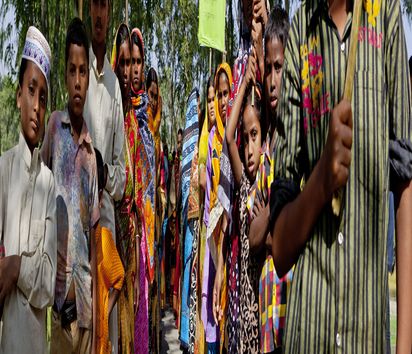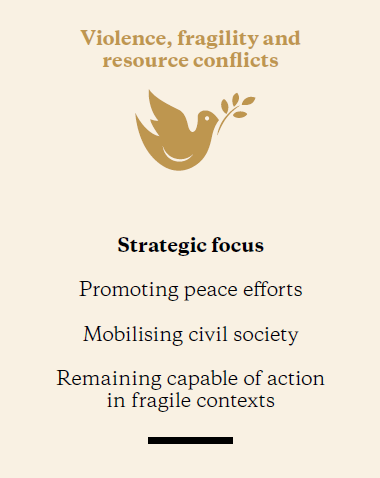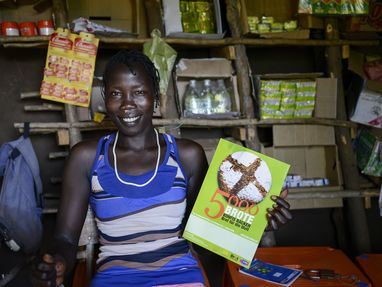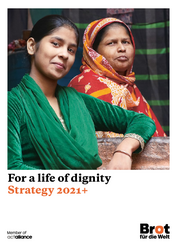No Development without Human Rights
... more


Around the world, conflicts are intensifying and revealing new dimensions of violence. The number of violent conflicts is also rising sharply. The number of people affected by conflict has doubled in the last ten years. Alongside climate change, these conflicts are key reasons why hunger, poverty and inequality are not just entrenched in many places, but are even increasing. The most vulnerable groups of society in particular are practically defenceless against systematic violations of their human rights.
Conflicts in failed or failing states are also increasing, and create the conditions for further violence. Often, the rules of war and international law are deliberately and systematically violated in such conflicts. Those caught up in the violence frequently have no choice other than to flee. Many seek sanctuary in neighbouring countries, which can increase social tensions there. The link between hunger, climate change and the resulting struggle for scarce natural resources leads to ever more protracted and intractable conflict situations. This also creates new challenges for the interaction between long-term development cooperation and acute humanitarian aid.
One consequence of the global competition for resources is that in resource-rich areas, the local population is often forcibly deprived of the right to use their ancestral land, forest, water or marine areas. And where there is a shortage of natural resources, those that do exist are fiercely fought over. The hunger of new industries for resources – such as in some parts of the digital economy – is adding to the problem.
The potential of churches and of interfaith cooperation to shape peace processes must become an even more important focus of peace work. Particularly in countries affected by crisis and fragile states where governments are unable to protect their population, it is non-governmental actors and especially churches that secure basic needs, offer people agency and open up new perspectives. A sustainable commitment to peace also requires sustainable prevention of violence: Causes of conflict are tackled using non-violent means and solutions are developed. In a world where resources are becoming increasingly scarce, the peaceful and fair balancing of interests is hugely important. Women in particular have a special role to play as peace actors.
Victims of violence, displaced persons and refugees must receive protection and support and must be integrated into their host societies. This will give them a voice and allow them to exercise their rights. This requires Germany and the EU to be further strengthened as peace actors.

“
„My parents fled with us from South Sudan when I was eight. We lived in a refugee camp for seven years before coming here. At first, the children in the village were very mean to me. They teased me and called me names. Things began to change when refugees and villagers started attending courses together run by the Mekane Yesus church. Now I feel accepted by everyone.“
Akiieh Cham (23)
from Gog Depach/Ethiopia
We support actors – such as churches and church-based partners – that campaign for peaceful cooperation, including interfaith cooperation, and constructive visions of the future.
We empower people who are affected by violence and conflict over resources – legally, economically and psychosocially. We also promote the integration of refugees into their host countries, even if their stay is only temporary.
We support activists who are persecuted because they campaign for peace, human rights or environmental protection.
We work with Diakonie Katastrophenhilfe to establish stronger links between development work, peace work and humanitarian aid.
We are more politically involved in the further development of the international system of human rights and the international prosecution of crimes. The focus here is on a fair distribution of resources, among other aspects.
We are committed to an international “raw material shift” – especially in Germany and the European Union. The focus here is on reducing the consumption of raw materials to a globally fair and ecologically sustainable level.
